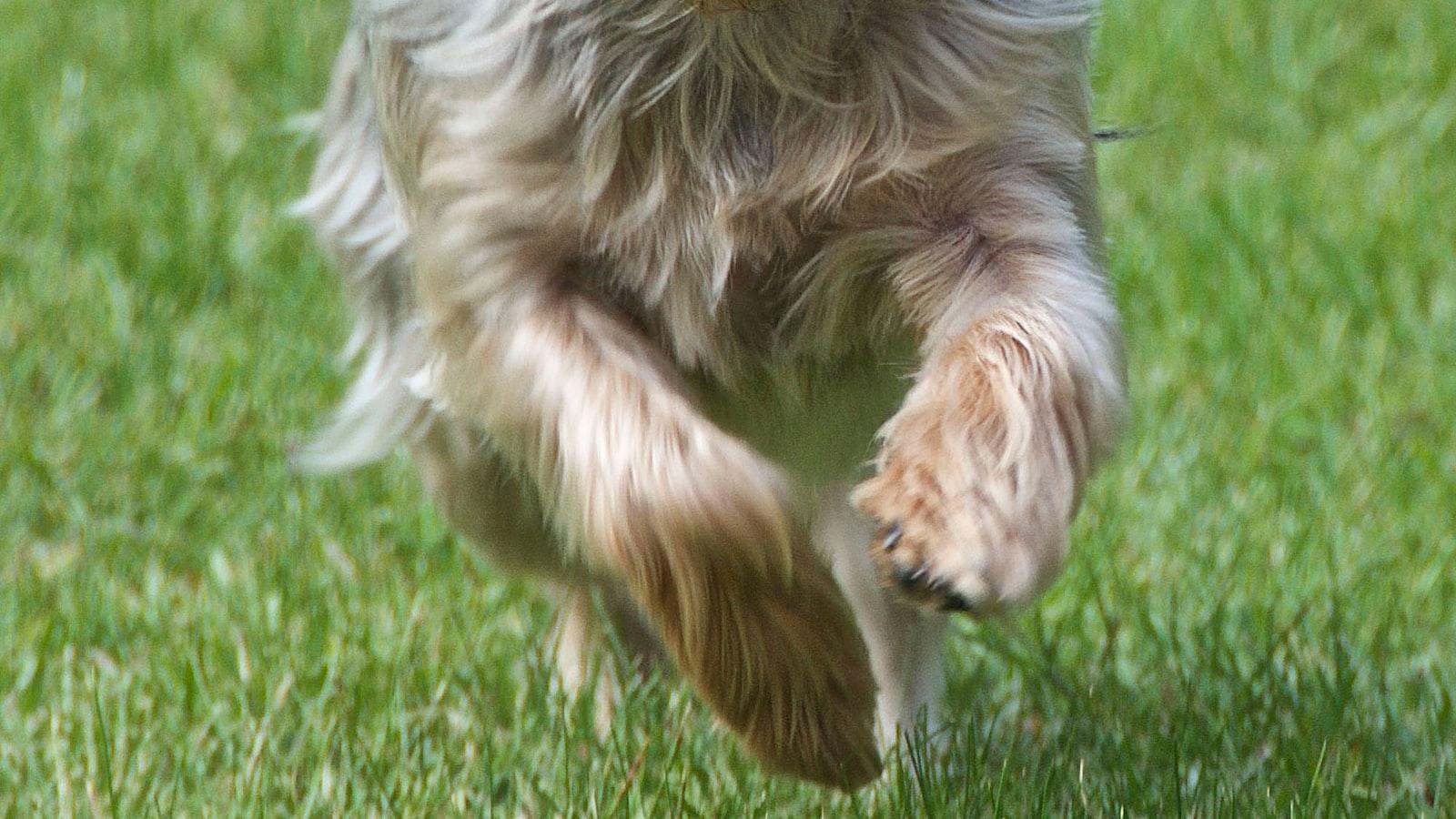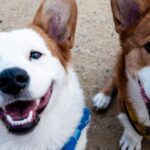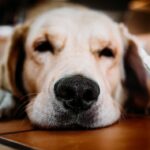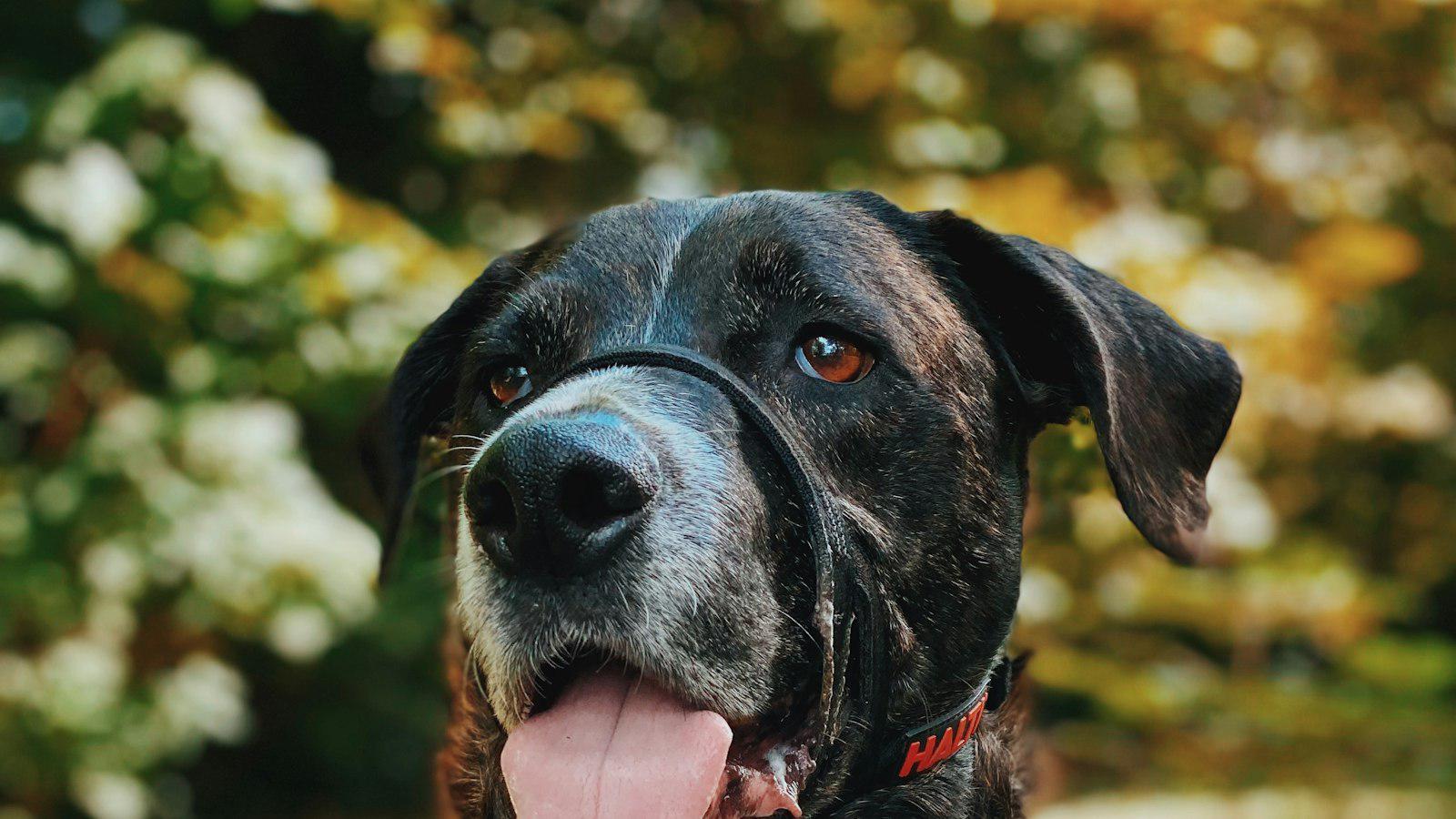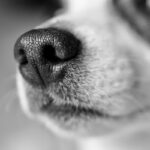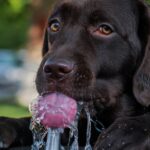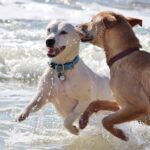Have you ever witnessed your dog engaging in a rather repulsive activity?
You’re strolling through the park, enjoying the fresh air, when all of a sudden, your beloved dog spots a pile of foul-smelling excrement and immediately lunges towards it.
You stand there, bewildered, perplexed, and a bit grossed out, wondering why on earth your canine companion would want to dive headfirst into a steaming pile of poop.
You certainly aren’t alone in this confusion.
Read on to see the answer to the age-old question: why in the world do dogs want to roll in poop?
Why Do Dogs Have a Fascination with Rolling in Poop?
We’ve all been there, walking our beloved furry friend in the park when suddenly they spot something absolutely revolting – a pile of poop.
And what do they do? They dive right in, rolling around with pure joy plastered across their furry faces.
Whether it’s fresh, decomposing, or even just the remnants of another animal’s waste, our furry friends seem to find an irresistible attraction to this smelly substance.
But why on earth would they do this? While it may seem repulsive to us, there are several theories and explanations that help shed light on this odd behavior.
One popular theory suggests that dogs roll in poop as a way to mask their own scent.
In the wild, this behavior could serve as a survival instinct, allowing them to camouflage themselves from potential predators or prey.
By masking their own scent with the strong odors of feces, dogs may believe they are increasing their chances of successful hunting or, on the flip side, avoiding becoming a meal themselves.
It’s a rather primitive defense mechanism that has persisted in domesticated canines, despite their spoiled lives as beloved pets.
Besides camouflage, wolves would also roll around in the carcasses of their prey to bring the scent back to the pack.
By doing this, they were sharing information about the availability of food with their fellow pack members.
Domestic dogs may have retained this instinctual behavior, even if their diet mainly consists of kibble these days.
So, the next time you see your pup wiggling around in poop, just remember it might be their way of saying, “Hey, I found something stinky and interesting – you should come check it out too!” Another plausible explanation is that dogs roll in poop as a form of communication.
We often forget that dogs primarily rely on their sense of smell to gather information about the world around them.
By covering themselves in the scent of feces, dogs may be sending a strong olfactory message to their fellow canines.
This aroma-filled coat could convey information about the dog’s diet, health, or recent experiences.
It’s their way of saying, “Hey, fellow canines, look what I found! Check out this interesting scent!” Some experts propose that rolling in poop is simply an enjoyable and instinctive behavior for dogs.
Just like how some dogs love to roll in grass or dirt, poop provides an intriguing texture and aroma that sparks their curiosity.
It could be seen as a way for dogs to engage their senses and explore their environment.
However, whether this behavior is truly enjoyable for them or simply instinctual remains a mystery that only dogs themselves know the answer to.
Indeed, sometimes it’s not just instincts and fascinating smells at play here.
Rolling in poop can also be reinforced by other factors.
For example, if your dog rolls in feces and you immediately give them attention, whether it’s positive or negative, they may interpret it as a reward.
Dogs crave attention from their humans, and if they have learned that rolling in poop leads to an interaction, they’re more likely to repeat the behavior.
So, inadvertently, our reactions can unknowingly contribute to this messy habit.
Now that we have a better understanding of why dogs are drawn to rolling in poop, let’s explore some strategies to help curb this behavior.
It’s important to note that training your dog requires patience and consistency.
Remember, they’re not doing it to annoy you but simply following their instincts.
Stay calm, and with time and effort, you’ll be able to break this smelly habit and keep your furry friend fresh and clean!
Recommendations for Ensuring Your Dog’s Safety and Maintaining Pleasant Walks
While dogs have a natural curiosity that sometimes leads them to roll around in unsavory things like dead animals or feces, it’s crucial to understand why they engage in such behavior and how to prevent it.
1. Regularly clean up your dog’s outdoor area: One way to discourage your dog from rolling around in dead things is by keeping their environment clean.
Regularly clean up your dog’s outdoor area, removing any discarded food, animal carcasses, or other unpleasant items that may trigger their instinct to investigate or roll on them.
Additionally, ensure your dog’s living space is clean and well-maintained, minimizing any undesirable smells that might attract their attention.
2. Practice the “Leave it” command: Teaching your dog the ”Leave it” command is invaluable when it comes to preventing them from rolling around in dead things during walks.
Start by introducing the command during training sessions, using positive reinforcement and treats to reward their compliance.
Gradually, incorporate the command while out on walks, ensuring your dog understands that ”Leave it” means they should avoid interacting with or rolling on any undesirable substances they might encounter.
3. Utilize deterrent sprays or unpleasant scents: In certain cases, using deterrent sprays or unpleasant scents can help dissuade your dog from rolling in dead things.
Consult with your veterinarian for safe and suitable products specifically designed to discourage dogs from engaging in such behavior.
Applying these sprays to potential targets or using them as a general deterrent during walks can help prevent your dog from indulging their curious instincts.
FAQ
Q: Seriously though, what possesses dogs to roll around in feces?
A: Well, it turns out there isn’t just one simple answer.
This tendency can differ from dog to dog, but there are a few reasons commonly associated with their stinky fascination.
Q: Alright, spill the beans.
What’s the first reason?
A: Picture this: dogs are descendants of wolves, and these intelligent creatures have preserved some of their ancestors’ instincts.
One theory suggests that rolling in poop helps them camouflage their natural scent, making it easier for them to hunt and hide from prey.
Q: That’s intriguing.
What’s the next possible explanation?
A: Dogs use scent as a way to communicate, and some experts believe that rolling in poop is a way for them to share information with other dogs.
Just like humans leaving voicemail messages, dogs might be saying, ”Hey, I’ve been here, and this is my territory!” It’s like a gross but effective message board for canines.
Q: So, is that all, or is there more behind this peculiar behavior?
A: Hold on, there’s more! Dogs have an exceptional sense of smell—way better than ours. Rolling in poop might actually stimulate their olfactory senses, similar to how we might love the smell of freshly brewed coffee in the morning.
It might be weird for us, but for them, it’s like sniffing their favorite perfume or cologne.
Q: Is there anything we can do to discourage this behavior?
A: Absolutely! While it may be hard to completely eradicate this quirk, there are a few things you can try.
Firstly, keeping a watchful eye on your pooch during walks and distracting them from any potential poop-rolling opportunities.
Training them with a solid “leave it” command can also come in handy.
Lastly, maintaining good hygiene by cleaning up after your dog promptly.
Q: Is there any danger associated with dogs rolling in poop?
A: Ah, yes, the worm question! Dogs can potentially contract parasites or bacteria from rolling in feces, which can lead to various health issues.
It’s always wise to take preventive measures, such as regular veterinary check-ups and vaccinations.
In the end, it’s better to be safe than sorry.
Conclusion
While it may seem like a bizarre and rather repulsive behavior to us humans, dogs have their own quirky reasons for indulging in this smelly phenomenon.
Whether it be for communication, hiding their own scent, or pure instinctual pleasure, our loyal canines seem to find some inexplicable joy in a fresh pile of poop.
While we may never fully understand why they do it, let’s remember that our pooch pals have their own unique way of experiencing and perceiving the world.
So the next time you catch your furry companion nose-deep in something foul, try not to get too worked up about it.
Instead, take a moment to appreciate their individuality and embrace the fact that dogs will forever be dogs, even if their choice of fragrance leaves much to be desired.
So, let’s raise a paw to our furry friends and their quirky ways.
After all, life with dogs would be far less entertaining without a few poop-filled stories to share.
And who knows, maybe one day scientists will uncover the true motive behind this peculiar behavior.
Until then, let’s just enjoy the sloppy kisses, wagging tails, and yes, even the occasional poop roll.
Remember, it’s all part of the paw-some canine experience!



